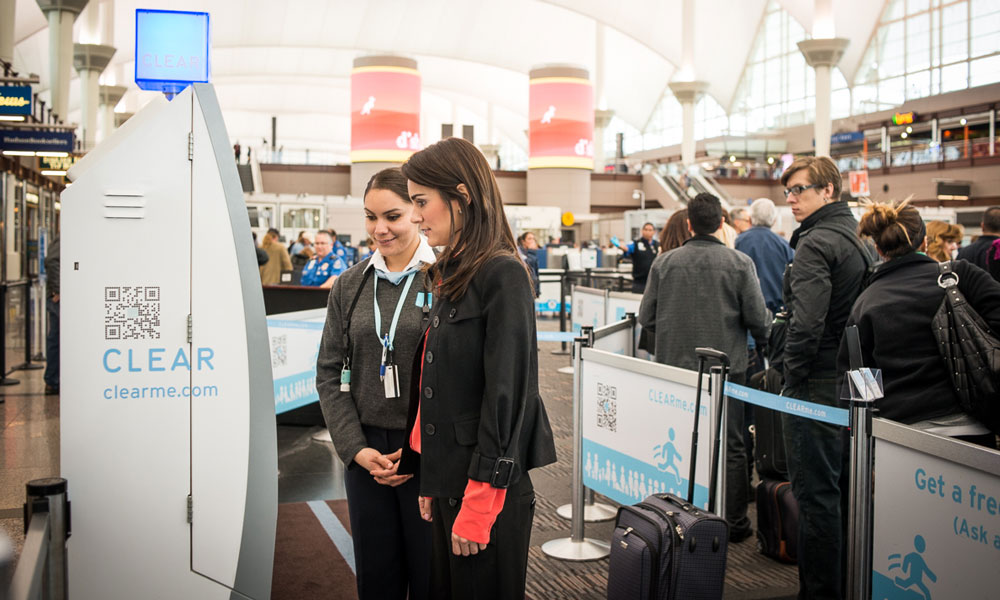
Airlines, Private Companies Take Stab at Getting Around TSA’s Lines
CLEAR, a company that uses biometrics to offer a shortcut at the airport security line, has earned a major boost in recent months. But the strategy, which comes with a yearly membership fee, has proved controversial for some.
The federal government’s attempts to speed up the security lines at airports through its long-running PreCheck program hasn’t moved fast enough for the airlines, which have struggled with TSA’s funding woes.
And that’s created a shift in strategy: Now, private companies, along with the airlines themselves are trying to offer options to travelers. Pay them, and they’ll put you at the front of the line.
The approach has been around for a few years but was picked up in the spring after Delta made a deal with CLEAR to expand an expedited security offering to more airports.
CLEAR’s approach, which uses biometrics, is seen as a way to speed things up beyond the security lines themselves. Alaska Airlines has used CLEAR’s biometrics technology for boarding passes, for example.
“Our customers tell us their time is valuable, as is having a consistent, enjoyable airport experience with reduced hassle,” Delta CEO Ed Bastian said in an April statement. “We look forward to what this partnership will bring to our customers.”
CLEAR, which offers its services in 13 airports nationwide, has become popular as lines have become a more serious problem. That growth (in the first four months of 2016, the company tripled its enrollment, compared to 2015, according to The Wall Street Journal) led Delta to buy a partial ownership stake in the company. It’s a major turnaround for a company whose original owner filed for bankruptcy back in 2009.
For most passengers, it costs $179 per year, but Delta plans to offer the service to high-level rewards members for free.
But the strategy, which has won fans among some passengers, isn’t loved by everyone. A Bloomberg report highlighted the frustration of some passengers, who believe the approach is unfair. Former Nebraska Sen. Ben Nelson, who once submitted a bill to rein in the practice, sided with those who think it is unfair for travelers to pay to get around the line.
“Buying your way to the front of the line—that has nothing to do with the level of security,” Nelson told Bloomberg. “Why should you have other folks stand in longer lines for a federal government program, the TSA?”
On the other hand, argued Airlines for America spokesman Vaughn Jennings, the approach is not unheard of—whether inside the airline business or out.
“The concept of a business or venue allowing its best or most frequent customers easier or expedited access to entry is not unique to airlines,” Jennings told Bloomberg.
The rise of CLEAR comes at a time when PreCheck lines have gotten longer as the service’s popularity has grown.
(CLEAR handout photo)






Comments